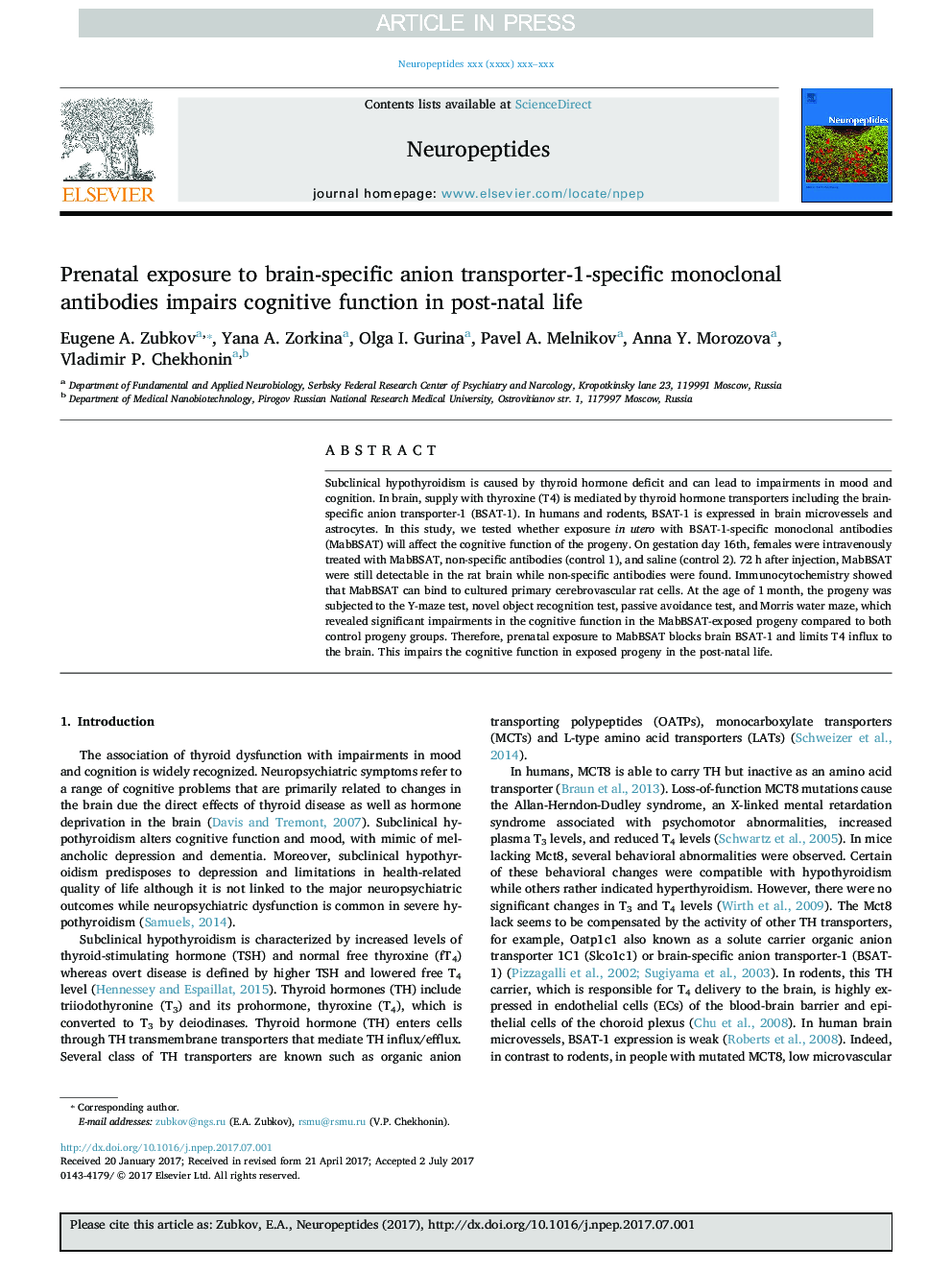| کد مقاله | کد نشریه | سال انتشار | مقاله انگلیسی | نسخه تمام متن |
|---|---|---|---|---|
| 8633463 | 1404558 | 2017 | 6 صفحه PDF | دانلود رایگان |
عنوان انگلیسی مقاله ISI
Prenatal exposure to brain-specific anion transporter-1-specific monoclonal antibodies impairs cognitive function in post-natal life
ترجمه فارسی عنوان
قرار گرفتن در معرض مواد مغذی خاص آنتی بادیهای آنیون مونوکلونال انسانی خاص 1 باعث کاهش عملکرد شناختی در زندگی پس از تولد می شود.
دانلود مقاله + سفارش ترجمه
دانلود مقاله ISI انگلیسی
رایگان برای ایرانیان
موضوعات مرتبط
علوم زیستی و بیوفناوری
بیوشیمی، ژنتیک و زیست شناسی مولکولی
علوم غدد
چکیده انگلیسی
Subclinical hypothyroidism is caused by thyroid hormone deficit and can lead to impairments in mood and cognition. In brain, supply with thyroxine (T4) is mediated by thyroid hormone transporters including the brain-specific anion transporter-1 (BSAT-1). In humans and rodents, BSAT-1 is expressed in brain microvessels and astrocytes. In this study, we tested whether exposure in utero with BSAT-1-specific monoclonal antibodies (MabBSAT) will affect the cognitive function of the progeny. On gestation day 16th, females were intravenously treated with MabBSAT, non-specific antibodies (control 1), and saline (control 2). 72Â h after injection, MabBSAT were still detectable in the rat brain while non-specific antibodies were found. Immunocytochemistry showed that MabBSAT can bind to cultured primary cerebrovascular rat cells. At the age of 1Â month, the progeny was subjected to the Y-maze test, novel object recognition test, passive avoidance test, and Morris water maze, which revealed significant impairments in the cognitive function in the MabBSAT-exposed progeny compared to both control progeny groups. Therefore, prenatal exposure to MabBSAT blocks brain BSAT-1 and limits T4 influx to the brain. This impairs the cognitive function in exposed progeny in the post-natal life.
ناشر
Database: Elsevier - ScienceDirect (ساینس دایرکت)
Journal: Neuropeptides - Volume 65, October 2017, Pages 100-105
Journal: Neuropeptides - Volume 65, October 2017, Pages 100-105
نویسندگان
Eugene A. Zubkov, Yana A. Zorkina, Olga I. Gurina, Pavel A. Melnikov, Anna Y. Morozova, Vladimir P. Chekhonin,
